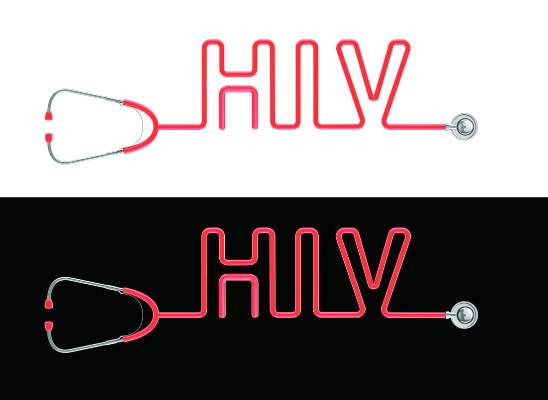FROM SURGERY FOR OBESITY AND RELATED DISEASES
Sleeve gastrectomy benefited obese HIV-infected patients and no adverse viral repercussions were detected, according to the results of a small prospective trial conducted from 2009 to 2015 at a single institution in France.
Ten patients were followed before and after sleeve gastrectomy. Eight were women and half were of African origin. The median patient age was 48.5 years, and the median time since HIV infection was 7.5 years. Patients had a median body mass index of 48.5 kg/m2 at the time of their procedure, according to Guillaume Pourcher, MD, PhD, of Paris-Sud University and his colleagues.
The researchers followed 10 HIV-infected patients who underwent bariatric surgery using sleeve gastrectomy between 2009 and 2015.The effects of sleeve gastrectomy on weight loss, HIV markers, and antiretroviral drug pharmacokinetics were assessed, as reported in Surgery for Obesity and Related Diseases .
The median postoperative weight loss was 43 kg, while the median percentage of excess weight loss was 82.5% at the latest follow-up. In addition, all comorbidities were resolved with weight loss. With regard to HIV status, there was no significant modification of the CD4 cell count in the patients before and after surgery. Importantly, the pharmacokinetics of the patients’ antiretroviral drugs remained “adequate and efficacious,” according to Dr. Pourcher and his colleagues.
“For HIV-infected patients,we need to choose a safe procedure, with no disruption of intestinal continuity, without implanted foreign material, resulting in less malabsorption, and with long-term weight loss efficacy,” the authors stated.
Taking this into account, optimal management of HIV-infected patients with morbid obesity may include classical surgical procedures such as sleeve gastrectomy as with non-HIV obese patients, as long as close drug monitoring and immunovirologic follow-up are maintained, they suggested.
Sleeve gastrectomy “appears to be a good therapeutic option in morbidly obese HIV-infected patients, because it avoids malabsorption and possible modification of antiretroviral drug absorption,” the researchers concluded.
The authors reported that they had no commercial conflicts of interest relative to their study.
SOURCE: Pourcher G et al. Surgery for Obesity and Related Diseases. 2017;13:1990-6 .





